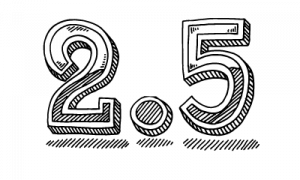@SBarker - are you a Filipino citizen or a foreign resident? For local students, AIM usually gives a discount through a "scholarship" (at least when I still lived in the Philippines). That will make the value for money perspective better (if you are Filipino).
Regarding your question on local alternatives, keep in mind that AIM was founded by 2 local universities - Ateneo de Manila University and De La Salle University. In fact the first graduating class of AIM were enrolled as Ateneo students (you can research that in the school's history). I would consider AIM as around the same caliber as its founding universities (Ateneo and La Salle) and the other 2 locally strong schools - University of the Philippines and University of Santo Tomas. Those 4 universities in the Philippines are the ones included in international university rankings (see QS World University rankings). They might not have AACSB accreditation but they have international "recognition". For example, credential evaluation agencies like WES will equate degrees from those 4 universities as comparable to a degree at the same level as a US or Canadian school. Outside those 4 schools, your degree might or might not be recognized - your mileage will vary. I have seen some Filipinos who migrated to Canada from non-top 4 Philippine schools have their MBAs evaluated as equivalent to a bachelors degree. Keep that in mind if you are enrolling locally.
As an Ateneo graduate (I did my bachelors degree there before studying for an MBA in the US), I have nothing against AIM - it is a good school comparable to the big 4 universities. But it is priced significantly more than the big 4 - it is not worth the $ amount. AIM's tuition is comparable to international schools that are ranked much higher. Personally, if I had to do my MBA locally in the Philippines, I would do it at one of the 4 schools I mentioned. The faculty are the same (AIM professors also teach part-time at the big 4 schools) so why spend extra?
In addition, recognition of your degree is not the same as the degree being respected. WES might evaluate AIM, UP, Ateneo, etc. as equivalent to a North American MBA but a North American employer will still know nothing about these schools. An exception is if you are Indian and intend to live in India, then AIM is respectable because its board of directors include the founder of InfoSys and they have tie-ups with XLRI (a good Indian Bschool).
Lastly, while AACSB accreditation tells you something about the quality of a school, it is not as big of a deal as you seem to suggest. Chico State (the poster child for local schools) is AACSB accredited, but it doesn't mean it has an international reputation. In contrast, McGill University (one of the top Canadian MBA programs) is not AACSB accredited but everyone will probably agree it does not matter. Regarding AIM, it lost its EQUIS accreditation (and almost lost its AACSB accreditation) back in the 2000's and that fact does not change how I view the school.
@SBarker - are you a Filipino citizen or a foreign resident? For local students, AIM usually gives a discount through a "scholarship" (at least when I still lived in the Philippines). That will make the value for money perspective better (if you are Filipino).
Regarding your question on local alternatives, keep in mind that AIM was founded by 2 local universities - Ateneo de Manila University and De La Salle University. In fact the first graduating class of AIM were enrolled as Ateneo students (you can research that in the school's history). I would consider AIM as around the same caliber as its founding universities (Ateneo and La Salle) and the other 2 locally strong schools - University of the Philippines and University of Santo Tomas. Those 4 universities in the Philippines are the ones included in international university rankings (see QS World University rankings). They might not have AACSB accreditation but they have international "recognition". For example, credential evaluation agencies like WES will equate degrees from those 4 universities as comparable to a degree at the same level as a US or Canadian school. Outside those 4 schools, your degree might or might not be recognized - your mileage will vary. I have seen some Filipinos who migrated to Canada from non-top 4 Philippine schools have their MBAs evaluated as equivalent to a bachelors degree. Keep that in mind if you are enrolling locally.
As an Ateneo graduate (I did my bachelors degree there before studying for an MBA in the US), I have nothing against AIM - it is a good school comparable to the big 4 universities. But it is priced significantly more than the big 4 - it is not worth the $ amount. AIM's tuition is comparable to international schools that are ranked much higher. Personally, if I had to do my MBA locally in the Philippines, I would do it at one of the 4 schools I mentioned. The faculty are the same (AIM professors also teach part-time at the big 4 schools) so why spend extra?
In addition, recognition of your degree is not the same as the degree being respected. WES might evaluate AIM, UP, Ateneo, etc. as equivalent to a North American MBA but a North American employer will still know nothing about these schools. An exception is if you are Indian and intend to live in India, then AIM is respectable because its board of directors include the founder of InfoSys and they have tie-ups with XLRI (a good Indian Bschool).
Lastly, while AACSB accreditation tells you something about the quality of a school, it is not as big of a deal as you seem to suggest. Chico State (the poster child for local schools) is AACSB accredited, but it doesn't mean it has an international reputation. In contrast, McGill University (one of the top Canadian MBA programs) is not AACSB accredited but everyone will probably agree it does not matter. Regarding AIM, it lost its EQUIS accreditation (and almost lost its AACSB accreditation) back in the 2000's and that fact does not change how I view the school.
-567a7.jpeg)

-bbbf1.jpeg)


